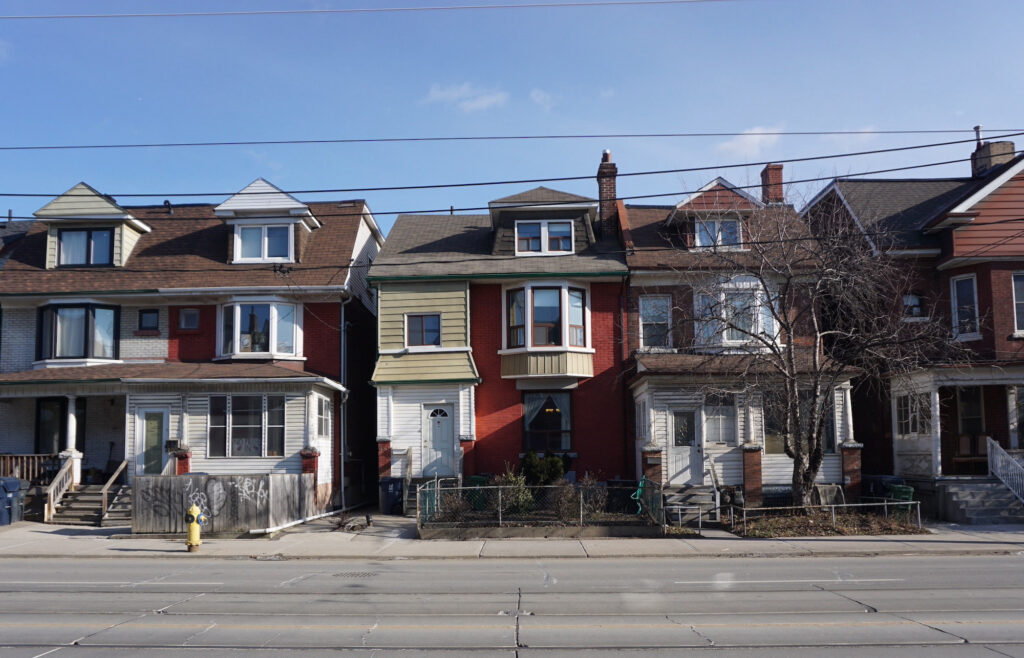A story in the National Post says a housing shortage in Montreal is “threatening the city’s reputation for affordable rent.” Which might seem to have nothing to do with climate policy. But the Post quotes a thoroughly “woke” renter asking “Since when did having an affordable, clean decent home become a luxury?” The right question is when did it stop being a luxury, and the answer is when the Industrial Revolution began mass producing affordable things based on cheap energy. And it will become a luxury again the day we price energy out of the reach of ordinary people. Are activists with such a robust sense of entitlement really ready to make such sacrifices to save the planet?
BTF
The story uncritically applauds this person who “says she knows her rights as a tenant and is willing to fight for them” as though telling a Dickensian tale of virtuous hipsters facing grasping landlords. But in doing so it overlooks the not-as-hard-as-it-looks issue of where wealth comes from including nice housing.
The historical answer to the renter-activist’s question is that an affordable, clean, decent home didn’t “become a luxury”. It always was one until the explosion of material wealth in the late 18th-century “Industrial Revolution” based on coal and steam then oil and electricity put them within the reach of regular folks. As Joseph Schumpeter observed in Capitalism, Socialism and Democracy, the first “Queen Elizabeth owned silk stockings. The capitalist achievement does not typically consist in providing more silk stockings for queens but in bringing them within the reach of factory girls for steadily decreasing amounts of effort”. And it should not be forgotten that the wealth resulting from industrialization also gave us the "luxury" of being able to worry about pollution and do something about it; prior to the 18th century clean drinking water was also a luxury even the rich could rarely obtain; more than a few kings died of dysentery.
Schumpeter’s emphasis on the role of innovation, what he called “creative destruction” as new technology and new kinds of organization sweep away old ones, underlines two key points about economic progress. First, just because we’ve been dependent on oil since around 1900 doesn’t mean we always will be. At some point some other forms of energy will presumably displace petroleum-based fuels, as the new kind becomes more reliable and more affordable. But there is no precedent for assuming government will pick this “winner” any more than it picked coal or before that wood and water. Second, while there is such a thing as “creative destruction” there is no reason to believe in “destructive creation”. If governments decide to get rid of the kind of energy that currently provides an abundant supply of safe, high-quality food, clothing and shelter, it does not mean another will automatically spring up to fill the gap. Instead, as in Venezuela, the result may well be misery, cold, hunger and life in a shack.
People like this Montreal renter may well believe the hype that making existing energy more expensive will lead to a flood of new and exciting technology that will provide the high-paid green jobs of the future, an investment, employment and personal fulfillment bonanza. But when such people demand that someone give them everything they want for a modest price, it’s not exactly the spirit that will make the kinds of sacrifices that meeting the Paris Accord targets, or exceeding them, will demand.



Thank You John for these articles. You are an excellent commentator and communicator of the basic problems of climate religion. We as a nation, Canada and the USA, are so completely out of touch with what its like to live in poverty. So many of us would describe ourselves as low income or "middle class" without realizing we are "Rich" beyond compare to so many millions of people who don't even have electricity.
Could someone check out Tony Heller's latest claim that NOAA has manipulated the climate record..again? If true, there should be hell to pay!